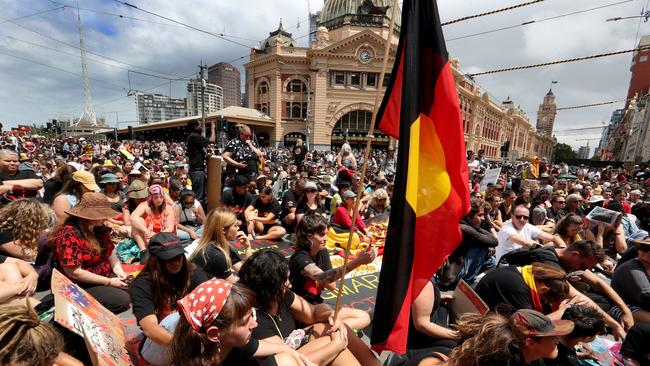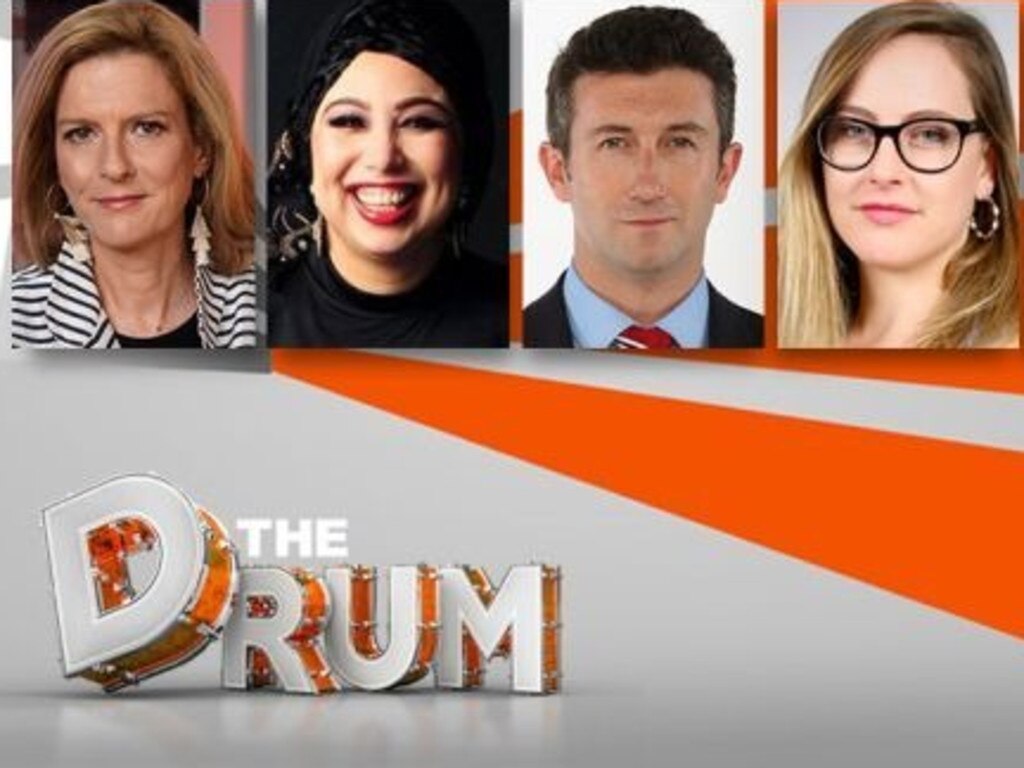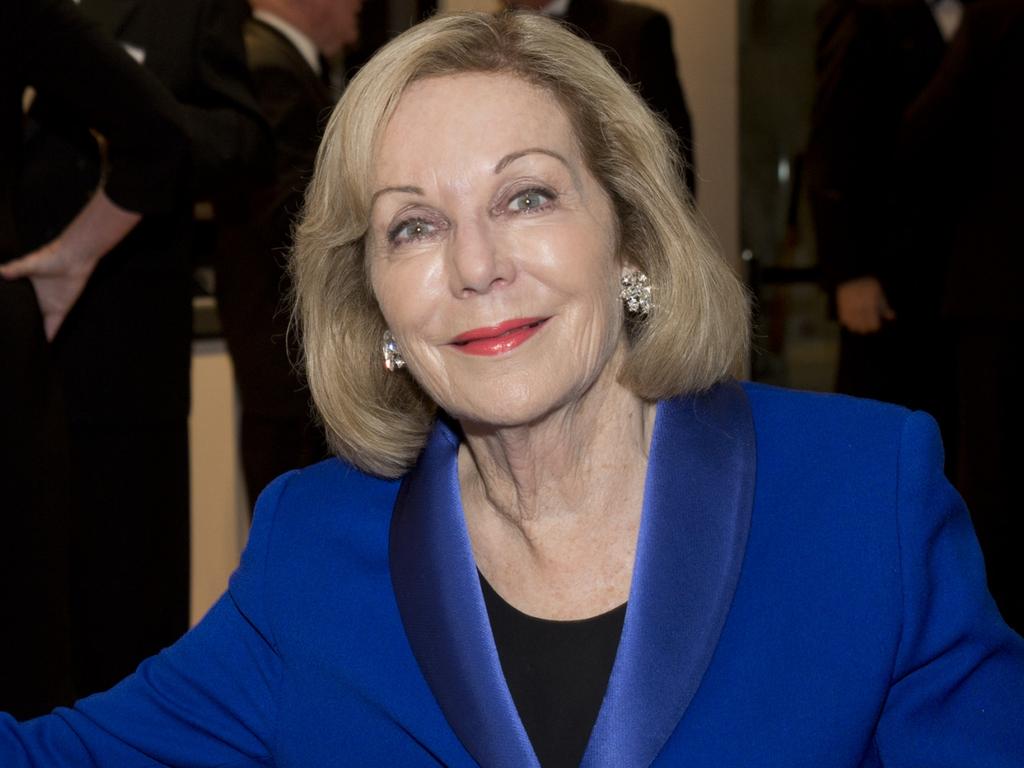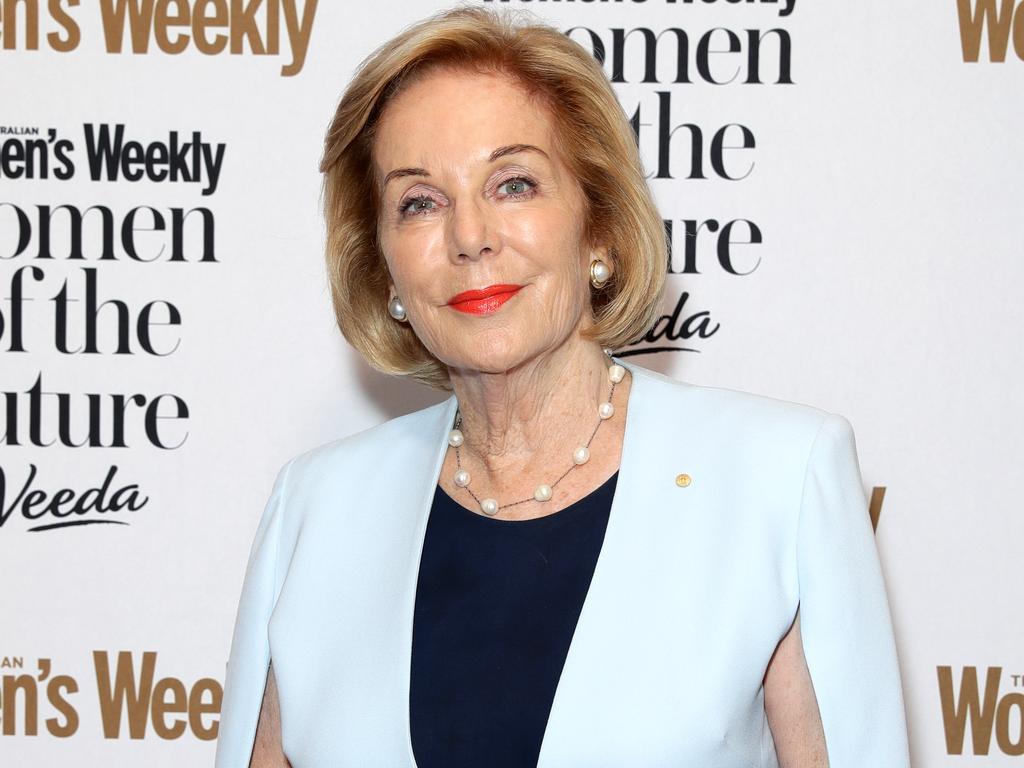ABC buckles after ‘Invasion Day’ controversy
The ABC has removed references to Australia Day as ‘Invasion Day’ from an online story after widespread criticism.

The ABC has removed references to Australia Day as “Invasion Day” from a story posted at the weekend after criticism from Communications Minister Paul Fletcher and others.
Mr Fletcher on Monday said it was “clearly wrong” to describe Australia Day in that way, the second time the government and the public broadcaster have been at odds after a stoush over the airing of a controversial episode of Four Corners focusing on Attorney General Christian Porter in November.
The ABC’s guide to Australia Day activities taking place around the country now only refers to “Invasion Day” in the fourth sentence – with changes to the headline and a number of paragraphs.
There is growing division about whether January 26, the day the First Fleet arrived in 1788, should remain Australia Day because of the impacts of European arrival on Indigenous Australians.
The ABC, in a statement, said its default terminology remained Australia Day but that it recognised and respected “that community members use other terms for the event, including ‘26 January’. ‘Invasion Day’ and ‘Survival Day’ … so our reporting and coverage reflect that”.
“Given the variety of terms in use, and the different perspectives on the day that the ABC is going to cover over the course of the long weekend, it would be inappropriate to mandate staff use any one term over others in all contexts,” the statement reads.
The article’s original headline – “Australia Day/Invasion Day 2021 events for Sydney, Melbourne, Canberra, Brisbane, Perth, Adelaide, Hobart and Darwin” – has since been amended to “Australia Day is a contentious day for many. Here are the events being held on January 26”.
An ABC spokeswoman said other terms for the event were not interchangeable with Australia Day. “We have changed a headline to reflect this,” she said.
“The Minister is aware of the ABC correction and welcomes it as a sensible outcome,” a spokesman for Mr Fletcher said.
Earlier, Mr Fletcher had asked for a correction. “While the ABC has editorial independence, and I do not control what it says, I call on the ABC to correct this inaccurate article”.
“For the ABC to suggest otherwise -- that in some way Invasion Day is interchangeable with Australia Day -- is clearly wrong,” he said. “The name of Australia Day is reflected in legislation across Australia. More important, it is reflected in the usage of the overwhelming majority of Australians.”
Others, however, backed the ABC’s decision to use the term “Invasion Day”.
Linda Burney, Labor’s Indigenous Australians spokeswoman, told the Seven Network it was clear “more and more Australians are coming to understand, as the ABC has demonstrated, that there are different views about this day”.
ABC ‘has got it wrong with Invasion Day’
Federal Communications Minister Paul Fletcher has ramped up his attack on the ABC after the public broadcaster defended its decision to refer to January 26 as “Invasion Day” in an online news article.
The ABC said it was inappropriate to insist that staff call it Australia Day or “use any one term over others in all contexts”.
In an article on the ABC News website titled “Australia Day/Invasion Day 2021 events for Sydney, Melbourne, Canberra, Brisbane, Perth, Adelaide, Hobart and Darwin”, the broadcaster described the January 26 public holiday as “one of the most polarising dates on the Australian calendar”.
“The ABC has clearly got this one wrong,” Mr Fletcher said in a statement.
“The name of our national day is well understood and supported, and for the ABC to suggest otherwise — that in some way Invasion Day is interchangeable with Australia Day — is clearly wrong.”
Mr Fletcher said the ABC had editorial independence, but called on the broadcaster to correct the “inaccurate article.”
ABC defends decision over ‘Invasion Day’
The national broadcaster attracted a barrage of criticism — and was accused of stoking national disunity and promoting its own political agenda — after publishing the article, in which the terms “Invasion Day” and “Australia Day” were used interchangeably.
Scores of Australians were quick to register their disapproval online after the article — an otherwise unassuming guide to activities taking place in capital cities around the country on Australia Day this week — was uploaded on Sunday morning.
The news story, entitled “Australia Day/Invasion Day 2021 events for Sydney, Melbourne, Canberra, Brisbane, Perth, Adelaide, Hobart and Darwin”, described the January 26 public holiday as “one of the most polarising dates on the Australian calendar”.
“January 26 marks Australia Day or Invasion Day, typically seen as a celebration of the nation or a day of sorrow for the colonisation of an ancient culture,” it added.
“For many First Nations people, it is a day to mourn the past and galvanise the community to address ongoing systemic racial injustice. For others, it’s a chance to spend time with family and friends at the beach or around barbecues.”
Under the ABC’s Editorial Policies, the national broadcaster has a statutory obligation to “ensure that the gathering and presentation of news and information is impartial”.
One Nation’s Mark Latham said labelling January 26 “Invasion Day” was needlessly incendiary in an events guide and described it as “part of an ongoing pattern” of political activism masquerading as journalism at the ABC.

“There is a determination in there (at the ABC) to rewrite our national history to fit in with their own left-wing biases and agendas,” the NSW upper house member said.
“It’s disappointing but I’m not surprised. If you can find one conservative voice or centrist voice discussing issues like this on the national broadcaster it’s a fluke. Instead, the ABC is intent on broadcasting political propaganda and left-wing ideologies and making the facts fit their own narrative.”
Leading Aboriginal activist Stephen Hagan applauded the ABC’s use of the term “Invasion Day”.
Dr Hagan, who this month won a 21-year fight to have Australian cheese brand Coon renamed, said that research conducted by the Australian National University suggested only about 20 per cent of Australians supported “the ambitions and goals” of their Indigenous counterparts.
“That means that any survey of the population will only ever garner 20-25 per cent support for the official adoption of Invasion Day and the term will never win approval by general consensus,” Dr Hagan said.
“So I applaud the ABC’s decision to call it Invasion Day because it is the correct term even if it is not the most popular term with everyone.”
An ABC spokeswoman said the broadcaster acknowledged the response generated by its use of the term “Invasion Day” and said that, while “Australia Day” remained the preferred terminology, staff members were free to use other titles for the public holiday at their discretion.
“Some audience members have been asking about the ABC’s terminology in stories and coverage around Australia Day. This is a perennial issue,” she said.
“The default terminology for the ABC remains ‘Australia Day’. We also recognise and respect that community members use other terms for the event, including ‘26 January’, ‘Invasion Day’ and ‘Survival Day’, so our reporting and coverage reflect that.
“It is important to note, though, that both the Macquarie and the Australian Concise Oxford dictionaries list ‘Survival Day’ and ‘Invasion Day’ as roughly synonymous with ‘Australia Day’, either as ‘viewed by Indigenous people and their supporters’ (Macquarie), or ‘especially in Aboriginal Australian contexts’.
“Given the variety of terms in use, and the different perspectives on the day that the ABC is going to cover over the course of the long weekend, it would be inappropriate to mandate staff use any one term over others in all contexts.”
Read the full ABC statement here.
Federal Communications Minister Paul Fletcher said the terminology used by the ABC was ultimately a matter for the broadcaster.
“The Morrison government’s position on Australia Day is very clear,” Mr Fletcher said. “The position taken by the ABC is a matter for which the ABC must take accountability, as the ABC, by statute, has editorial independence from government.”
Evan Mulholland, Director of Communications at the Institute of Public Affairs said the move shows the ABC “is now the Unaustralian Broadcasting Corporation”.
“The government ought to step in and prevent the ABC from pushing divisive identity politics and diminishing our national day,” he said.
“The ABC claims it hosts a diversity of opinion, poll after poll finds that Australians support Australia Day on 26 January yet the ABC continues to publish ‘analysis’ against our national day without one piece in favour.
“If the ABC wants to keep pushing a divisive invasion day narrative they should be privatised so that taxpayers aren’t paying the bill for their political campaign.”
Additional reporting: Adeshola Ore







To join the conversation, please log in. Don't have an account? Register
Join the conversation, you are commenting as Logout